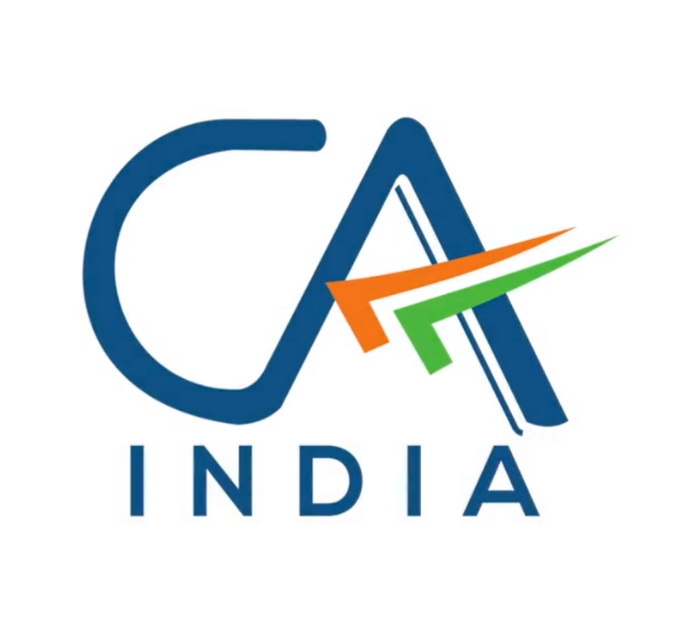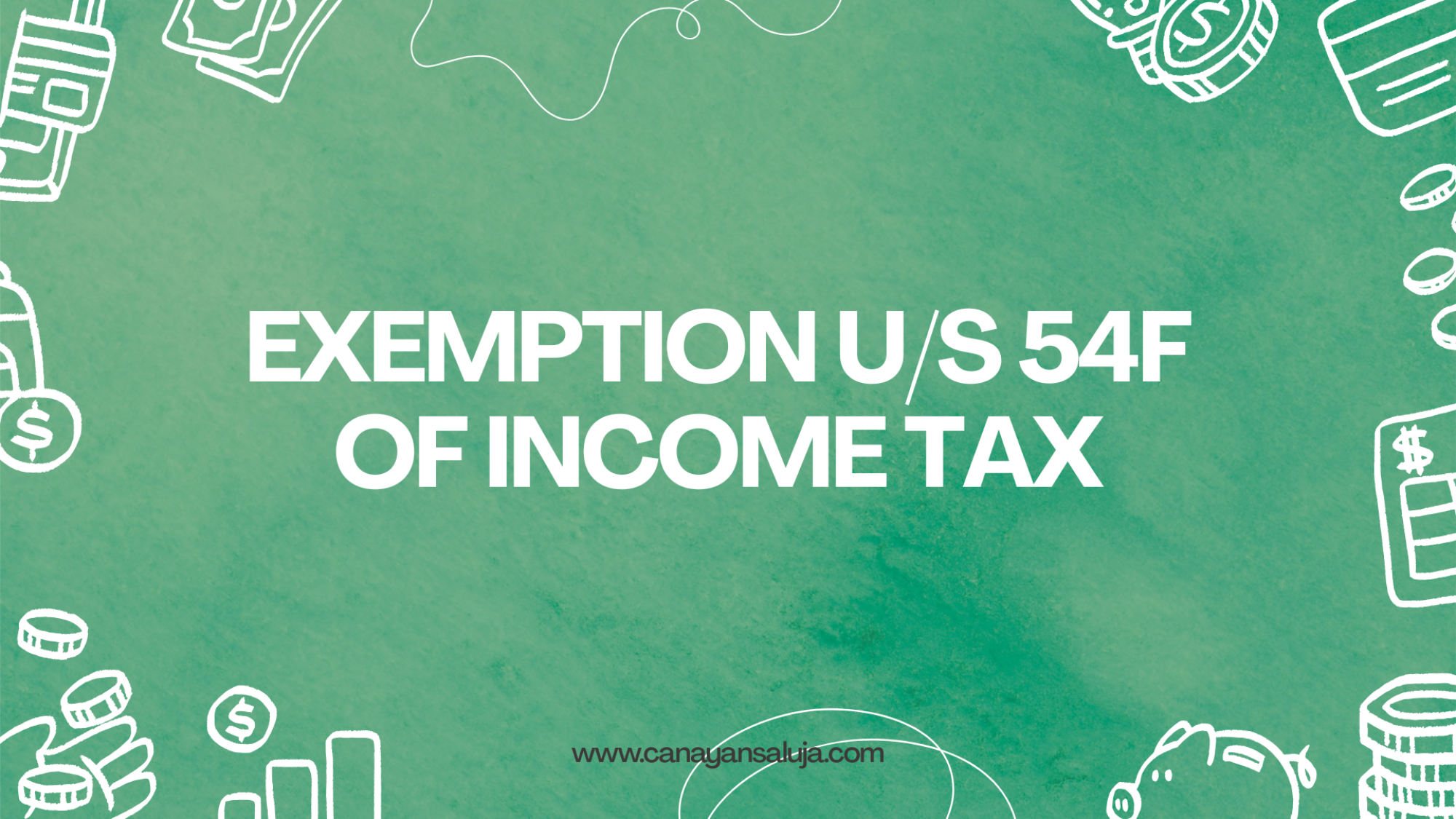EXEMPTION U/S 54F OF INCOME TAX
Under Section 54F of the Income Tax Act, an Individual or HUF selling an Urban Agricultural land can avail tax exemptions from Capital Gains if the capital gains are invested in purchase of Rural or Urban Agricultural Land.
Taxpayers such as partnership firms, LLP’s, companies or any other association or body cannot claim tax exemption under Section 54F.
Conditions for claiming exemption under Section 54F.
|
A. |
Assessee |
Only Individual or HUF can claim exemption under this section. |
|
B. |
Transferred Asset |
Asset sold/ transferred during the previous year must be Long Term Capital Asset other than Residential House Property. |
|
C. |
Capital Gain on Transferred Asset |
Asset must be classified as long term capital asset and the gain arising must be long term capital asset. |
|
D. |
Asset to be Acquired |
New asset acquired must be one Residential House property in India only. |
|
E. |
Time limit for Purchase or reconstruction |
Purchase: The Residential house property must be purchased 1 year before or 2 years after the date of transfer. Construction: Complete the construction of Residential house property within 3 years from date of transfer. |
|
F. |
Deposit Scheme |
Capital Gain Account Scheme (Note 1). |
|
G. |
Amount of exemption |
(A*B)/C Where, A= Long term Capital Gain. B= Cost of New Asset/ Deposit amount.
Note: If cost of new asset exceeds Rs. 10 crores, then the amount exceeding Rs. 10 crores shall not be taken into account for the purpose of exemption (w.e.f. A.Y 24-25). |
|
H. |
Lock in Period |
If New Asset is transferred within 3 years from date of purchase or construction the exemption claimed earlier shall be withdrawn & shall be treated as Long Term Capital Gain. |
|
I. |
Case Laws Ravinder Kumar Arora 2012 Delhi |
Where a house property is registered in Joint names, the exemption u/s 54F can be allowed fully to the co-owner who has paid whole of the purchase consideration, and it will not be restricted to his share in house property. |
|
|
Sambandam Udaykumar 2012 Karnataka |
Exemption u/s 54F cannot be denied on the ground that the construction was not completed within 3 Years after the date on which transfer took place, on account of pendency of certain finishing work like flooring, electrical fittings, fittings of door shutter etc. |
|
|
Gouli Mahadevappa 2013 Karnataka |
Where the Stamp Duty Value u/s 50C has been adopted as Full Value of Consideration, the reinvestment made in acquiring a residential property, which is in excess of the actual net sale consideration, can be considered for the purpose of computation of exemption u/s 54F, irrespective of the source of fund of such reinvestment. |
|
J. |
Additional Conditions |
1.On the date of transfer of Long term capital asset, assessee should not own more than one residential house property.
2.Should not purchase any other house property within 2 years or construct within 3 years after the date of transfer.
If the above conditions are not satisfied then exempt Capital Gain, taxable in Previous Year in which such other residential house is purchased/ constructed. |
NOTE 1: CAPITAL GAIN ACCOUNT SCHEME
|
1.
|
Amount: If investment u/s 54F is not made before the date of filing of return, then the amount of capital gain has to be deposited under Capital Gain Account Scheme. The amount so deposited shall be deemed to cost of new asset. |
|
2.
|
Time Limit: Such deposit in Capital Gain Account Scheme should be made before due date or actual date of filing the return, whichever is earlier. |
|
3.
|
Unutilized Amount: If the amount deposited is not utilized for the specified purpose within the stipulated period, then the unutilized amount shall be charged as Capital Gain of the P.Y in which the specified period expires. |
|
NOTE: CBDT clarifies that in the event of death of an individual before the stipulated period, the unutilized amount is not chargeable to tax in the hands of legal heir of deceased individual. |
|
Example: Mr. Ramesh purchased a plot of land in Chennai in June 2005 for Rs. 48 lakhs. On 4th January 2024, the land was sold to Mr. Mukesh for Rs. 105 lakhs and the stamp duty value as on that day was Rs. 150 lakhs. During the Financial Year 2023-24 Mr. Ramesh earned business income of Rs. 25 lakhs.
He Acquired a new residential property for Rs. 130 lakhs by investing the entire sale consideration and business income.
Determine Total Income of Mr. Ramesh for A.Y 24-25
|
Financial Year |
CII |
|
2005-06 |
117 |
|
2023-24 |
348 |
Computation of total income of Mr. Ramesh for A.Y 24-25
|
Particulars |
Rs. In Lakhs |
Rs. In Lakhs |
|
Business Income |
|
25.00 |
|
Capital Gain Full value of Consideration (Note 2) |
150.00 |
|
|
Less: Indexed cost of acquisition (Note 3) |
(142.77) |
|
|
Less: Exempt u/s 54F (Note 4) |
(6.26) |
|
|
Long term capital gain |
|
0.97 |
|
Total Income |
|
25.97 |
Note 2: As per Section 50C, the full value of consideration would be higher of :
|
Particular |
Amount in lakhs |
|
110% of Consideration (110% * 105 lakhs) |
115.5 |
|
Stamp duty Value |
150 |
|
Full value of consideration (higher of above) |
150 |
Note 3: Computation of indexed cost of Acquisition:
|
Particular |
Amount in lakhs |
|
Cost of Acquisition |
48 |
|
Indexed Cost of Acquisition (48*348)/117 |
142.77 |
Note 4: When the capital gain is assessed on notional basis as per the provisions of Section 50C and the higher value i.e. stamp duty of Rs 150 lakhs under Section 50C has been adopted as Full value of Consideration, the entire amount of Rs. 130 lakhs reinvested in the residential house within the prescribed period should be considered for the purposes of exemption u/s 54F, irrespective of source of fund for such reinvestment.
Exemption u/s 54F = (7.23*130)/150 = 6.26 lakhs.



Add a Comment